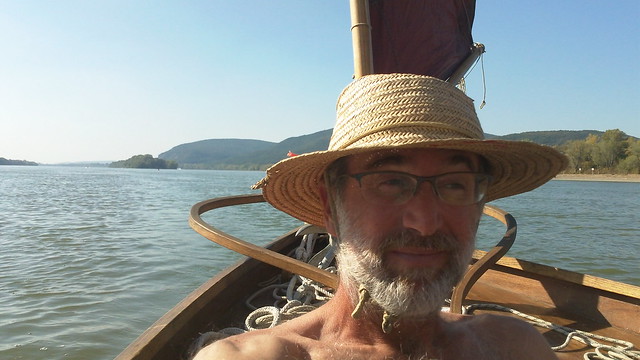
Dear close and far away friends, I’m writing from Esztergom, Hungary. It was called Strigonium by ancient Romans: I can’t tell if any of them is still here, but I often get the impression to hear somebody who’s talking in Italian and say to myself: “Where are all of these Italian guys in Hungary?”
 But when I get closer to listen what they’re saying, I can’t understand a single word. It’s strange, one of the hardest languages of the planet sounds a bit like Italian if not listened carefully. The Hungarian, belonging to the Ugro-Finnic group of languages, reminds me a little of Lombard speaking.
But when I get closer to listen what they’re saying, I can’t understand a single word. It’s strange, one of the hardest languages of the planet sounds a bit like Italian if not listened carefully. The Hungarian, belonging to the Ugro-Finnic group of languages, reminds me a little of Lombard speaking.
After all, Attila the Hun passed here too: It wasn’t for him, I wouldn’t be here. Why? Because Venice would have never been built without Attila’s invasions, and those unhealthy lands will still be the reign of coots, mosquito and of the few fishermen enjoying them.
 A wonderful book written in the second half of the 16th century by Francesco Tatti (who loved to be called “Francesco Sansovino” from the nom de plume of his dad Jacopo Tatti aka “Sansovino”, famous architect and scholar in Florence and Venice), was titled “De Barbari, onde ebbe origine l’inclita città di Venexia” (Barbarians, origin of the glorious city of Venice). It tells how the legendary birth of the city, on March 23rd 421, was a consequence of the heavy invasions by Attila in 352, that destroyed and scared the roman colonies along the Veneto coastline.
A wonderful book written in the second half of the 16th century by Francesco Tatti (who loved to be called “Francesco Sansovino” from the nom de plume of his dad Jacopo Tatti aka “Sansovino”, famous architect and scholar in Florence and Venice), was titled “De Barbari, onde ebbe origine l’inclita città di Venexia” (Barbarians, origin of the glorious city of Venice). It tells how the legendary birth of the city, on March 23rd 421, was a consequence of the heavy invasions by Attila in 352, that destroyed and scared the roman colonies along the Veneto coastline.
Do I miss Venice? Not at all, here I feel at home and maybe now the barbarians are all in the lagoon to speak Venetian! In these places, I can sense the long lasting civilization of beautiful people with a great dignity, especially the elders. The city is quite nice too, except for the cathedral that’s too bulky. I’ve already met two Attilas, welcoming me with a smile in the canal that used to be the old Danube course. We’re moored in a nice pier just under the old city fortress.
Here, the Danube is a real river once again, I’ll tell you why later on. (more…)























